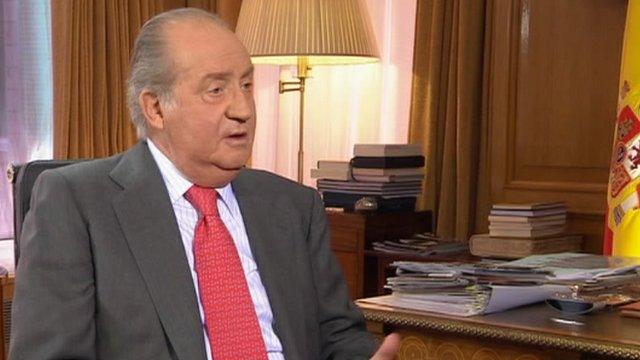Spanish politicians set out abdication timetable
- Published
The king and prince appeared together at a parade for the first time since the announcement was made, as Tom Burridge reports
Spanish politicians have been outlining the next steps in the abdication of King Juan Carlos and the accession of his son Crown Prince Felipe.
Parliament Speaker Jesus Posada said that he thought the necessary legal steps could be completed by 18 June.
The royal household would then decide the date of the coronation, he said.
Prime Minister Mariano Rajoy has rebuffed calls for a referendum on the monarchy, saying it had "the support of the great majority in Spain".
The king announced on Monday that he would step down after nearly 40 years on the throne.
He was seen as popular for much of his reign, but recently many Spaniards have lost confidence in him.
On Monday evening, hours after his announcement, some left-wing parties staged demonstrations attended by tens of thousands of people across many cities, including Madrid and Barcelona, demanding a referendum on the monarchy.
However, the two main parties in parliament remain loyal to the monarchy, with the El Pais newspaper estimating that at least 86% of MPs will approve the special law needed to ensure the succession.
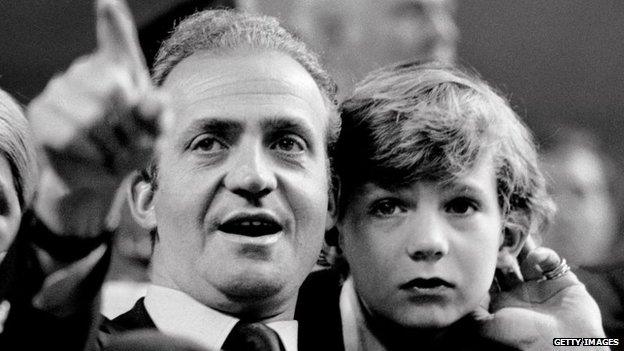
The king is credited with helping steer the transition to democracy in the early years of his reign
Thousands of people have gathered for an anti-monarchy protest, as Mariko Oi reports

What the constitution says
Article 57, point 5 of the 1978 Constitution says that in case of abdication, the succession must be resolved by "an organic law".
An "organic law" is one which is required for new developments in the most fundamental aspects of law and must be passed by a majority of all members of the lower house of parliament, not just a majority of those present.

After an emergency cabinet meeting, Mr Rajoy and his minsters have drawn up the special law needed under the constitution to facilitate the succession.
The legislation must now be approved by parliament, with a vote in the lower house expected on 11 June and one in the upper house on 17 June, according to Spanish media.
"I think that by 18 June, everything could be prepared for the proclamation of the king in parliament," Mr Posada said.
"But that is not my decision to take. We will speak with the royal household and with the government," he added.


Analysis from the BBC's Tom Burridge in Madrid
The numbers of people who turned out to demonstrate in Spanish cities against the monarchy on the day that King Juan Carlos announced his abdication were not huge.
And although republicanism is a fairly mainstream, and potentially potent, current of opinion within Spanish society, the demonstrations did not amount to anything that will change the political process towards Prince Felipe becoming king.
Royal officials insist that although reforms are needed to the Spanish constitution, now is "not the the time" for such debates. They hope the law can pass smoothly and quickly.
Any future reform could look at the fact that male members of the royal family take precedence over older female heirs, something that has recently changed in Britain.
It should be a political formality that Prince Felipe, and his glamorous wife Letizia will become king and queen.
Over the coming weeks, months and years, it will be interesting to see if they can improve the popularity of the institution of the monarchy in Spain, which has been declining in recent years.

Prince Felipe and his wife, currently known as the Prince and Princess of Asturias, have a fairly favourable image in the Spanish media and they have scored much higher in opinion polls than other members of the Spanish Royal family.
The new king, who will be Felipe VI, will inherit an institution that has been tarnished by scandal in recent years.
He will have to contend with a long-running corruption investigation into the business dealings of his sister and her husband.
Support for the monarchy fell further when it was discovered that Juan Carlos had been on a lavish elephant-hunting trip to Botswana in April 2012, in the middle of Spain's financial crisis.
King Juan Carlos, 76, has had health problems in recent years
Juan Carlos took the throne in 1975, after the death of General Francisco Franco, the dictator who had ruled for 36 years.
The king became Spain's first crowned head of state for 44 years.
But he soon ignored Franco's supporters, who wanted an extension to autocratic rule, and ushered in a new system of parliamentary democracy.
- Published19 June 2014
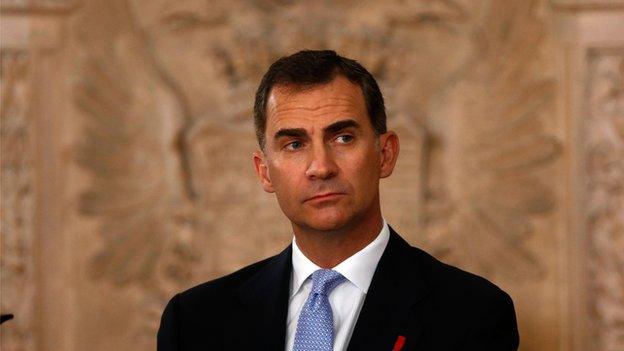
- Published3 June 2014
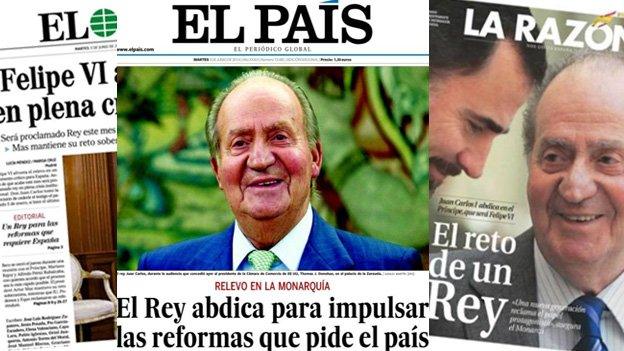
- Published2 June 2014
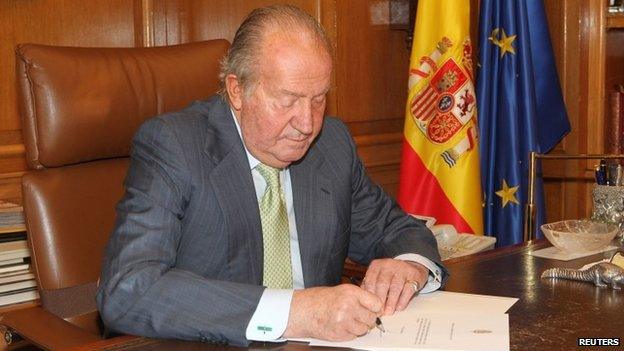
- Published2 June 2014
- Published2 June 2014
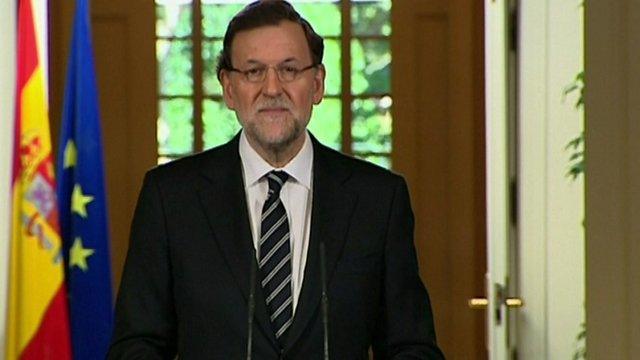
- Published19 June 2014
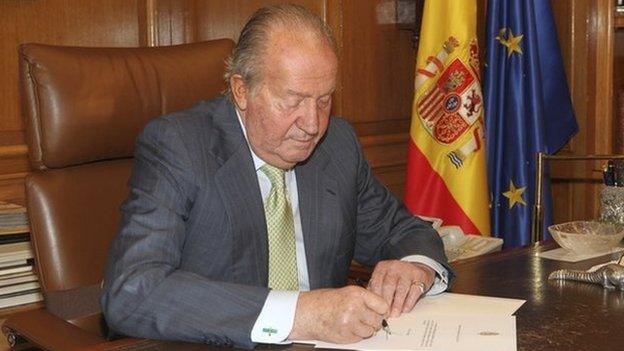
- Published5 January 2013
